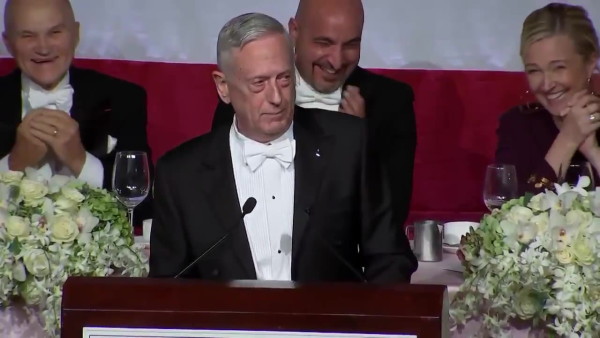

The book “Strange Defeat” details how France was conquered by Nazi Germany in 1940, but it could just as well describe President Donald Trump’s record as commander in chief.
For someone who crows about winning all the time, the president seems to lose quite a bit. Since October 6, he has given Turkish President Recep Tayyip everything he has ever wanted by abandoning the U.S. military’s best allies in Syria, allowing Turkey to establish a safe zone along its border with Turkey that expels all Kurdish forces, and withdrawing most U.S. troops from northeast Syria – allowing Russia to fill the vacuum.
What did he get in return? He gets to gloat that he made good on his campaign promise to end one of the U.S. military’s commitments overseas and bring the troops home. (Although, a better way of saying it is that he allowed Turkey to chase out U.S. forces, who had to leave Syria so quickly that they did not have time to take high value ISIS prisoners into custody and they had to bomb one of their own ammunition dumps.)
Trump does not have a great record when it comes to foreign policy. His maximum pressure campaign to persuade Iran to give up its nuclear weapons program has resulted in the Navy losing a $110 million drone and the Pentagon having to deploy thousands of troops to Saudi Arabia after attacks on Saudi oil refineries, which the U.S. government has blamed on Iran.
While Trump wisely walked away from a bad deal on North Korea’s nuclear weapons, he has also given Kim Jong Un carte blanche to test ballistic missiles.
The president may very well face impeachment proceedings over allegations that he used a military assistance package to get Ukraine to dig up dirt on his political rival, former Vice President Joe Biden.
And the trade war that Trump declared on Chinese goods certainly hasn’t helped farmers.
Despite his reputation as a successful businessman and a skilled negotiator, the president has shown he makes strategic decisions largely based on how he feels about foreign leaders, such as Erdogan, Kim, and Russian President Vladimir Putin, with whom he has a strong rapport.
But since Trump has often pledged to end the Forever Wars, U.S. troops in Afghanistan should have their junk on a bunk in case the president tweets late one night that he has reached a deal with the Taliban to restore the Islamic Emirate.
It is likely the president will eventually withdraw all U.S. troops from Afghanistan – with or without a peace deal with the Taliban – because Trump has made clear he wants out, said Bill Roggio, a senior fellow with the Foundation for Defense of Democracies think tank in Washington, D.C.
“It’s a campaign promise that he made,” Roggio told Task & Purpose. “He wants to stick by it. He’s taking on the mantra of ending the endless wars and he wants to follow through on that. He tried to do this recently in Afghanistan. It failed because a peace deal couldn’t be reached but I believe he’ll try again.”
Even if Trump withdraws U.S. troops from Afghanistan, the war there won’t end, Roggio said. The Taliban would take over large parts of the country, but it is also likely that the country would lapse into civil war for years.
At this point, many of you can rightly point out that this reporter is talking out of both sides of his mouth. Your friend and humble narrator has often criticized the White House, the Pentagon, and Congress of dereliction of duty for not coming up with a strategy to end the Forever Wars.
The U.S. military cannot stay in Iraq and Afghanistan indefinitely and the U.S. military’s presence in Syria was a temporary solution that had become permanent because the American public largely didn’t care about the mission.
But perhaps the president learned everything about foreign policy from the movie “Major League,” wherein the owner of Cleveland Indians wants her team to finish the season in last place, thus driving down attendance to the point where she can relocate the franchise to Miami. (The film featured a young Charlie Sheen before his idea of winning was getting piss drunk and waving a machete from a rooftop.)
Trump’s deep commitment to protecting the lives of U.S. troops is admirable, but the United States cannot become collaborators with Turkey, Russia, North Korea, and other countries that want to establish a new order. If the president really wants to lead a losing team, he can buy the Baltimore Orioles.
Jeff Schogol covers the Pentagon for Task & Purpose. He has covered the military for 14 years and embedded with U.S. troops in Iraq and Haiti. Prior to joining T&P, he covered the Marine Corps and Air Force at Military Times. Comments or thoughts to share? Send them to Jeff Schogol via email at schogol@taskandpurpose.com or direct message @JeffSchogol on Twitter.
